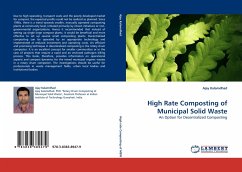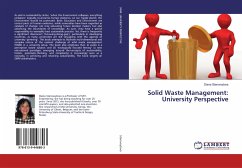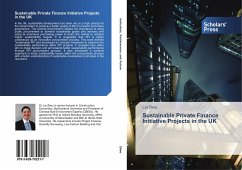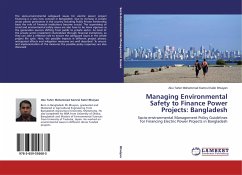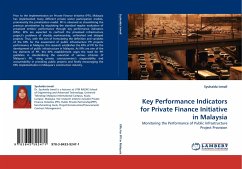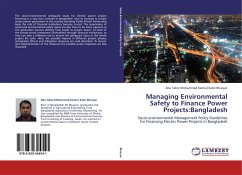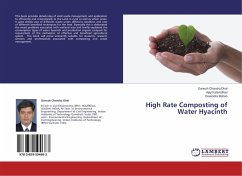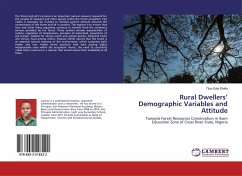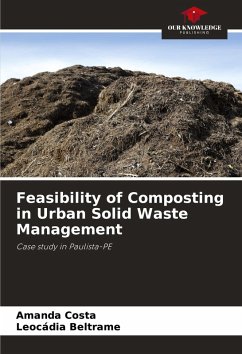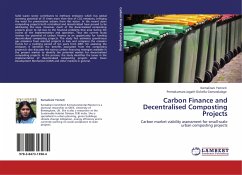
Carbon Finance and Decentralised Composting Projects
Carbon market viability assessment for small-scale urban composting projects
Versandkostenfrei!
Versandfertig in 6-10 Tagen
32,99 €
inkl. MwSt.

PAYBACK Punkte
16 °P sammeln!
Solid waste sector contributes to methane emissions which has global warming potential of 21 times more than that of CO2 emissions, bringing the need for preventative actions from this sector. In the recent years composting projects both centralized and decentralized have proved to be addressing this issue. However, much of the decentralized composting projects prove to fail due to the financial problems that arise during the course of the implementation and operation. Thus the current study reviews the potential of carbon finance as an opportunity for funding decentralized composting projects...
Solid waste sector contributes to methane emissions which has global warming potential of 21 times more than that of CO2 emissions, bringing the need for preventative actions from this sector. In the recent years composting projects both centralized and decentralized have proved to be addressing this issue. However, much of the decentralized composting projects prove to fail due to the financial problems that arise during the course of the implementation and operation. Thus the current study reviews the potential of carbon finance as an opportunity for funding decentralized composting projects. The study first estimates greenhouse gas emissions from selected projects in Asia and compares the emission trends for a crediting period of ten years from 2007. On assessing the emissions it identifies the benefits associated from the composting projects.It also discusses the various carbon financing strategies available in the present market to identify the potential market for decentralized composting projects. In the process, the study identifies the issues in the implementation of decentralised composting projects under Clean Development Mechanism (CDM) and other markets in general.



